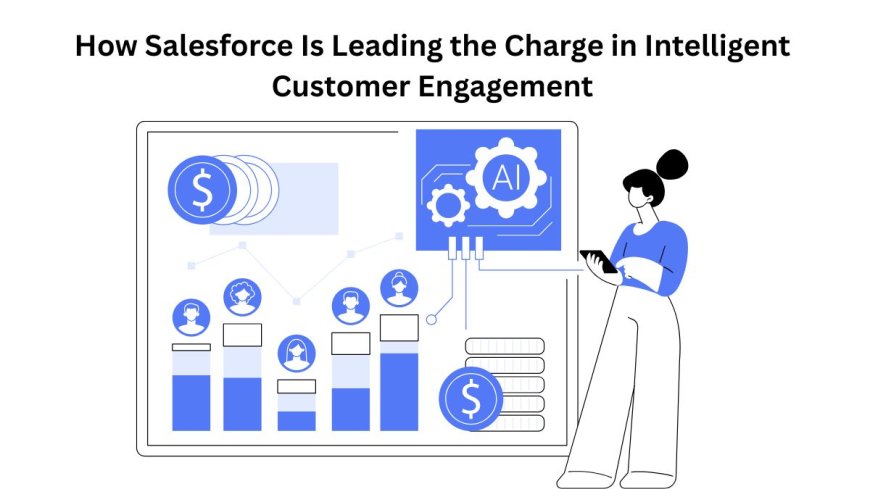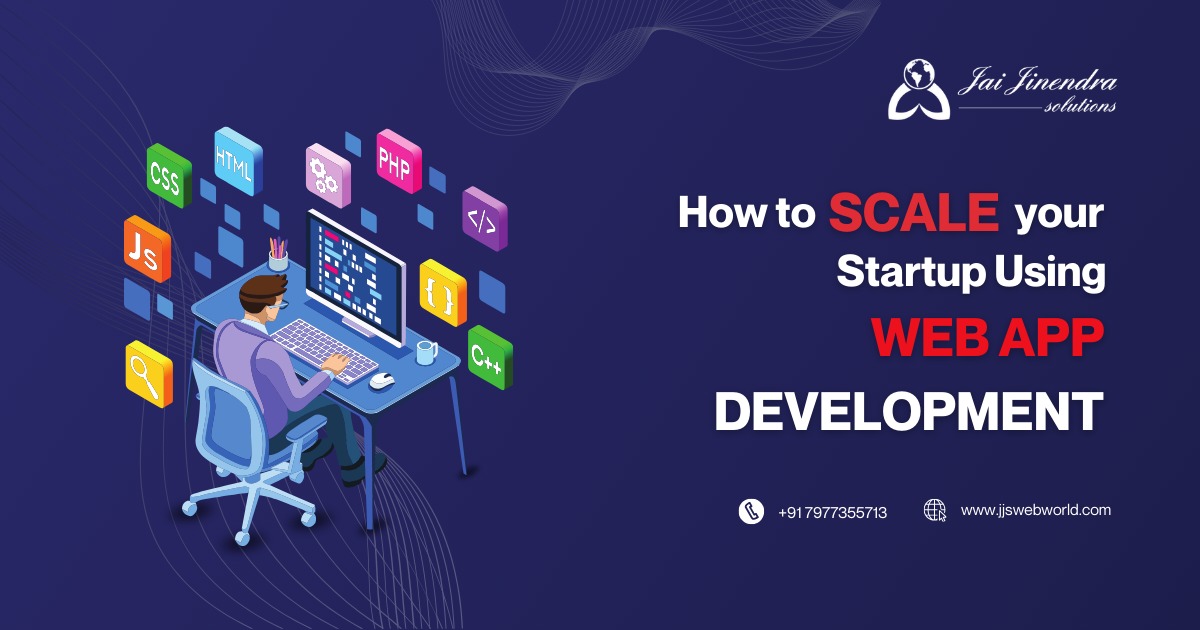How Salesforce Is Leading the Charge in Intelligent Customer Engagement
Intelligent customer engagement refers to the ability of businesses to understand, anticipate, and meet customer needs using data-driven insights, automation, and real-time interaction capabilities.

The dynamics of customer engagement have undergone a dramatic transformation. Businesses are no longer competing solely on products or pricing—they are being judged by the quality, speed, and personalization of their customer interactions. In this landscape, intelligent engagement has become the new standard, and Salesforce has positioned itself at the forefront of this shift, offering the tools and frameworks necessary to deliver smarter, more connected customer experiences.
Understanding Intelligent Customer Engagement
Intelligent customer engagement refers to the ability of businesses to understand, anticipate, and meet customer needs using data-driven insights, automation, and real-time interaction capabilities. It is not just about responding to customer queries but proactively guiding them through their journey, delivering value at every touchpoint, and doing so at scale.
To enable such engagement, companies require a platform that seamlessly integrates data across departments, leverages artificial intelligence (AI), and provides tools for automating interactions while maintaining a human touch. Salesforce delivers all of this and more through its comprehensive ecosystem of solutions.
The Salesforce Ecosystem: Designed for Intelligence
At the heart of Salesforce’s success in customer engagement is its modular and scalable ecosystem, built on the Customer 360 platform. This platform unifies customer data from marketing, sales, service, commerce, and other functions, allowing businesses to view each customer as a complete profile rather than a disconnected series of interactions.
The unified data model is the foundation for intelligent automation, predictive analytics, and personalized communication, all essential components of intelligent engagement. Using features like real-time tracking, AI-powered recommendations, and contextual insights, Salesforce enables businesses to create experiences that feel both seamless and tailored.
AI and Automation: The Core of Smart Engagement
Salesforce’s AI engine, Einstein, is a key differentiator in enabling intelligent customer engagement. Einstein is integrated across all Salesforce clouds—Sales, Service, Marketing, and Commerce—and it uses machine learning to analyze large volumes of data and provide actionable insights. This includes lead scoring, next-best-action recommendations, service case predictions, and personalized content generation.
Automation is also embedded into the platform through tools like Flow and Process Builder, which allow businesses to build automated workflows without needing deep programming knowledge. These tools are essential for scaling personalized engagement, enabling timely follow-ups, automating routine service responses, and guiding users through tailored sales journeys.
The Role of Salesforce Development Services
For organizations to fully harness the capabilities of Salesforce for intelligent engagement, Salesforce development services play a critical role. While the platform offers powerful out-of-the-box functionality, intelligent engagement often requires customization that aligns with specific business processes, industry requirements, and customer behavior patterns.
Salesforce development services include:
-
Custom App Development: Building bespoke applications within Salesforce using Apex, Visualforce, and Lightning Web Components to serve unique engagement workflows.
-
System Integrations: Connecting Salesforce with third-party platforms such as ERP systems, customer support software, or analytics tools to create a unified view of the customer.
-
API Development: Creating secure APIs that allow seamless data exchange between Salesforce and other systems to enhance customer insights and automation capabilities.
-
User Interface Customization: Designing tailored user experiences that simplify how customer-facing teams interact with the platform, thus enabling quicker response times and better engagement.
Development services enable businesses to turn Salesforce into a truly intelligent engagement hub, rather than just a CRM. By tailoring the platform to match specific engagement strategies, organizations can achieve greater responsiveness, deeper personalization, and improved customer satisfaction.
Personalization at Scale
One of the most pressing challenges for businesses is delivering personalization not just occasionally, but consistently across thousands—or millions—of customer interactions. Salesforce addresses this through features like Dynamic Content, Journey Builder, and Einstein Segmentation.
These tools allow companies to segment their audiences based on behavioral and demographic data, define unique paths for each segment, and deploy content that resonates with individual preferences and behaviors. Importantly, all of this is done within a single interface, powered by a unified data model and enriched by AI.
What makes this possible is not just the technology but the platform’s adaptability. Through custom development and extension, organizations can go beyond standard segmentation and create engagement logic that mirrors their brand philosophy and customer expectations.
Real-Time Engagement and Responsiveness
In the era of digital immediacy, responding to customer needs in real time is crucial. Salesforce enables this through its Live Agent, Omni-Channel Routing, and Mobile Engagement capabilities. These tools help service teams manage customer inquiries across chat, social media, email, and mobile platforms, all from a single console.
Additionally, Salesforce’s robust analytics engine helps businesses monitor real-time customer behavior and respond instantly with relevant offers, assistance, or follow-up actions. These insights are not just reactive—they form the basis for proactive engagement strategies, such as reaching out to customers before they experience a problem or anticipating their next purchase.
Measuring and Optimizing Engagement
Intelligent engagement is an evolving process, and Salesforce provides the tools needed to continually measure and improve. Dashboards and reports powered by Salesforce Analytics Cloud allow businesses to track KPIs such as customer satisfaction, engagement rates, case resolution times, and conversion metrics.
When paired with Salesforce development services, companies can design custom reporting structures that highlight the metrics most relevant to their specific goals. Whether it’s measuring the impact of a new sales strategy or evaluating the effectiveness of automated customer journeys, Salesforce offers the flexibility to track what matters most.
Security and Trust in Engagement
As customer data becomes central to engagement strategies, data security and compliance are more important than ever. Salesforce has built a reputation for being a secure and compliant platform, with features like field-level security, encryption, audit trails, and role-based access control.
Intelligent engagement requires not just access to data, but trust in that data—both from internal users and customers. With Salesforce, businesses can build transparent data policies and ensure compliance with international standards such as GDPR, HIPAA, and SOC 2.
Conclusion
Salesforce’s approach to intelligent customer engagement is not limited to a single feature or tool—it is an ecosystem built to evolve with business needs, fueled by AI, driven by data, and extended through expert development services. Its ability to unify customer data, automate interactions, predict needs, and personalize at scale makes it a leader in the intelligent engagement space.
By combining out-of-the-box capabilities with tailored Salesforce development services, organizations can create an agile, responsive, and intelligent engagement strategy that drives deeper customer loyalty and sustained business growth. As customer expectations continue to rise, platforms like Salesforce are no longer optional—they are essential tools for delivering experiences that truly connect.
























































































































































